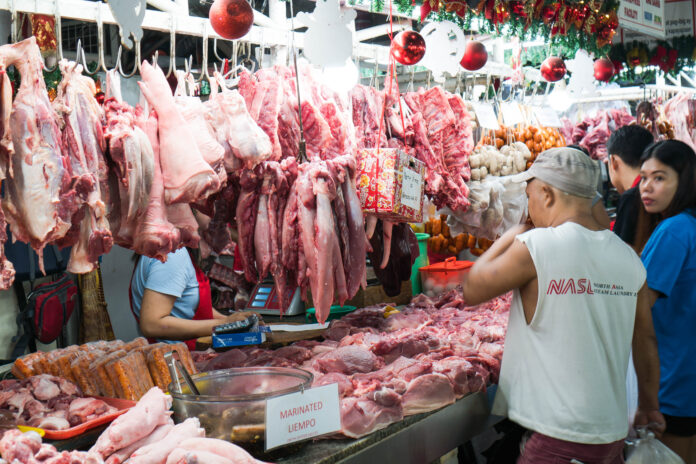The Department of Agriculture (DA) is considering reconvening with local pork stakeholders as it grapples with low compliance rates following the implementation of the maximum suggested retail price (MSRP) for pork in the National Capital Region’s wet markets. Despite the rollout of the price ceiling for the commodity on 10 March this year, the DA reports that adherence to the new price guidelines is significantly lacking. The DA said this could trigger further government interventions.
As part of the new policy, the DA set the MSRP for pork products at P380 per kg for liempo, P350 per kg for kasim and pigue, and P300 per kg for “sabit ulo,” the price at which pork is passed from wholesalers to retailers. However, DA assistant secretary Arnel de Mesa disclosed that the compliance rate at pork stalls is a mere 20 percent, and a poor 6 to 7 percent compliance rate was observed on the logistics side, where pork products are supplied to retailers.
“If sabit ulo will not comply, therefore, retailers will really have a hard time to also comply with the P350 to P380 per kg pricing,” de Mesa explained. He said the low compliance, particularly from logistics, could disrupt the entire price control mechanism and make it difficult for retailers to stick to the prescribed prices.
The government’s initial move to impose the MSRP on pork follows a similar policy introduced last year for rice. The rice MSRP faced its own challenges with low compliance at first, but over time, the government managed to stabilize prices through consistent enforcement and market corrections. The DA is hopeful that the same outcome can be achieved with pork prices.
According to the DA’s latest monitoring, the farm gate price for local pork currently ranges from P220 to P250 per kg. However, traders had initially agreed to a P70 profit margin when the guidelines for pork MSRP were being developed, raising concerns about whether the price structure is being honored.
“We will need to discuss this with traders,” de Mesa said, acknowledging that some stakeholders are deviating from the agreed-upon terms. He also stressed that if prices do not ease despite stakeholder consultations and attempts to enforce the MSRP, the government may intervene by selling pork at Kadiwa rolling stores, which would bypass middlemen and provide cheaper pork directly to consumers.
The DA program to establish a price ceiling is in line with its broader strategy to ensure affordable meat products for consumers, particularly in light of rising food costs. With pork prices still selling from P340 to P470 per kg in public markets, the program is seen as critical in stabilizing the sector and protecting consumers from excessive price hikes.
As the DA prepares to engage with stakeholders once more, the government remains committed to using all tools at its disposal—including direct market interventions via Food Terminals Inc.—to ensure that pork remains affordable for the public, despite the current market challenges.







